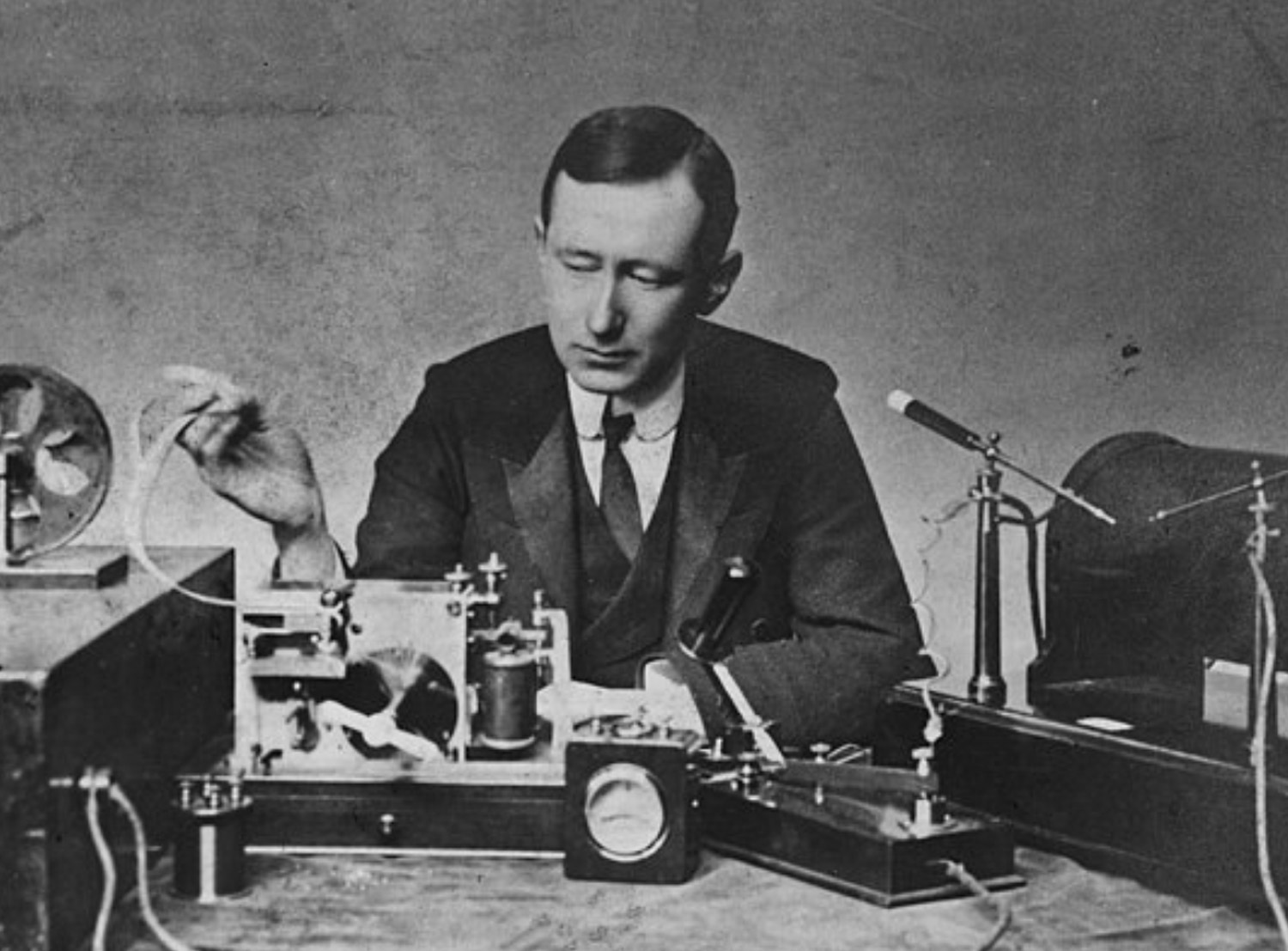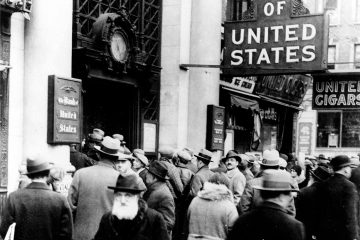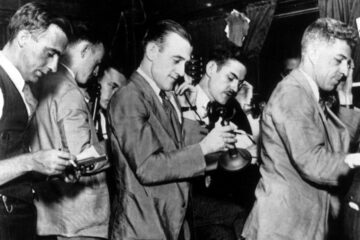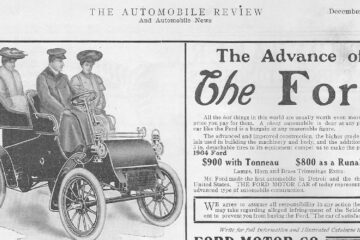What Happened in Business: 1901
| « 1900 | 1902 » |
 Summary: Growth Year ꜛ
Summary: Growth Year ꜛ
U.S. President: William McKinley, T. Roosevelt
DJIA End of Year Close: 55.61
Top Stocks: United States Steel Corporation, American Tobacco Company, Northern Pacific Railway*
Media: Newspaper, Mail, Magazine, Telegraph, Posters, Catalogs, Typewriters, Photography, Some Telephone
Wealthiest American: John D. Rockefeller
U.S. Population: 76 million (1900 census)
Era: Progressive Era (1890s–1920s)
Key Events & Dates
Assassination of President William McKinley: September 6, 1901
President William McKinley was shot by anarchist Leon Czolgosz on September 6, 1901, in Buffalo, New York, during a public event. McKinley succumbed to his injuries on September 14, leading to the swearing-in of Vice President Theodore Roosevelt as the 26th President.
Formation of U.S. Steel Corporation: February 25, 1901
The U.S. Steel Corporation was established through the merger of major steel producers, including Carnegie Steel Company, becoming one of the world’s first billion-dollar corporations.
Discovery of Oil at Spindletop, Texas: January 1901
The Spindletop oil field in Texas came into production, sparking a significant boom in the oil industry and transforming the energy landscape.
First Transatlantic Wireless Communication (Marconi’s Wireless Telegraph): December 12, 1901
In December 1901, Guglielmo Marconi successfully transmitted the first transatlantic wireless communication. The historic message was sent from Poldhu in Cornwall, England, to Signal Hill in St. John’s, Newfoundland. This achievement marked a significant milestone in the development of wireless telegraphy.
Northern Securities Company Formation: November 13, 1901
Financiers J.P. Morgan, James J. Hill, and E.H. Harriman formed the Northern Securities Company, raising concerns about monopolistic practices and antitrust issues.
Dow Jones Industrial Average (DJIA) Widely Recognized: May 26, 1896 (widely recognized in 1901)
The Dow Jones Industrial Average, though first published in 1896, gained widespread recognition in 1901 as a key indicator of stock market performance.
Merger of Edison General Electric and Thomson-Houston Electric Company: 1892 (ongoing impact in 1901)
General Electric (GE) was formed through the merger of Edison General Electric and Thomson-Houston Electric Company, continuing to influence the electrical and industrial sectors.
Pan-American Exposition in Buffalo: 1901
Buffalo hosted the Pan-American Exposition, serving as a platform for businesses to showcase products and innovations in a world’s fair setting.
Creation of the Victor Talking Machine Company: 1901
The Victor Talking Machine Company was founded, contributing to the growth of the phonograph industry and impacting the entertainment and music sectors.
Formation of the American Bankers Association: 1901
The American Bankers Association was established, representing the interests of the banking industry.
Completion of the Pacific Cable: 1901
The Pacific Cable was completed, improving international communication and trade by laying telegraph cables across the Pacific Ocean.
Founding of the Dodge Brothers Company: 1901
The Dodge Brothers Company was founded, later becoming a major American automobile manufacturer.
Launch of the Cadillac Automobile Company: August 22, 1902 (impactful beginnings in 1901)
The Cadillac Automobile Company was founded, playing a significant role in the early automotive industry.
Establishment of the Federated Department Stores: 1901
Federated Department Stores were founded, contributing to the development of the retail industry.
United States Steel Recognition Strike: September 22, 1901
The United States Steel Recognition Strike occurred, marking a significant labor dispute in the steel industry and highlighting tensions between workers and corporations.
Establishment of the National Bureau of Standards: March 3, 1901
The National Bureau of Standards was established, contributing to the standardization of measurements and supporting technological advancements in the United States.
Founding of Gillette: September 28, 1901
King C. Gillette founds the American Safety Razor Company, introducing the safety razor with disposable blades, revolutionizing the shaving industry.
Formation of Edison Storage Battery Company (April 17):
Thomas Edison establishes the Edison Storage Battery Company, later known as Exide Corporation, to develop and manufacture storage batteries for electric vehicles.
U.S. Economic Landscape in 1901
In 1901, the United States was experiencing the peak of the Gilded Age, characterized by rapid industrialization, economic growth, and the rise of big business. Here are some key aspects of the U.S. economic landscape during that time:
Industrialization:
The country was in the midst of the Second Industrial Revolution, marked by the expansion of industries such as steel, oil, and electricity. Factories were becoming more mechanized, leading to increased production and economic output.
Corporate Consolidation:
The trend of corporate consolidation was prominent, with major business figures like J.P. Morgan playing a significant role. The formation of trusts and large corporations, such as the U.S. Steel Corporation in 1901, exemplified the concentration of economic power.
Railroads:
Railroads were a vital component of the U.S. economy, facilitating the transportation of goods and people. Figures like James J. Hill, who focused on efficient and innovative railroad management, contributed to the expansion of the rail network.
Oil Industry:
The oil industry, led by figures like John D. Rockefeller and his Standard Oil Company, was a dominant force. Standard Oil controlled a substantial portion of the oil market, but it faced increasing antitrust scrutiny.
Financial Sector:
The financial sector was growing in importance, and figures like J.P. Morgan were instrumental in shaping the banking and investment landscape. The combination of banking and industrial interests contributed to the formation of financial trusts.
Labor Struggles:
The period was marked by significant labor unrest, with strikes and protests occurring in various industries. Workers sought better conditions, higher wages, and shorter working hours in response to the challenges posed by industrialization.
Monetary System:
The Gold Standard Act of 1900 had established gold as the standard for redeeming paper currency. This adherence to the gold standard was a key feature of the U.S. monetary system at the time.
Tariffs and Trade:
Protectionist tariffs were in place to shield domestic industries from foreign competition. The U.S. pursued a policy of economic nationalism, aiming to protect and promote American industries.
Technological Advancements:
Innovations in technology, particularly in electricity and communications, were transforming various sectors. The development of the electric power industry and the expansion of the telegraph and telephone networks were notable advancements.
Political Influence on Business:
Political figures, including President William McKinley, played a role in shaping economic policies. McKinley’s administration favored a pro-business stance, and his assassination in 1901 led to the presidency of Theodore Roosevelt, who would later become known for his progressive policies and trust-busting efforts.
The economic landscape of 1901 laid the groundwork for the progressive era that would follow, characterized by increased government intervention, antitrust legislation, and social reforms in response to the challenges and inequalities associated with the Gilded Age.
Consumer Brands of the Era
In the year 1901, several consumer brands were already established in the United States. While the concept of branding was not as prominent or diversified as it is today, some companies had already gained recognition for their products. Here are a few examples:
Coca-Cola:
Although Coca-Cola was introduced in 1886, it had already become a popular beverage by 1901. The iconic soft drink was being sold in bottles and was steadily growing in popularity.
Gillette:
King C. Gillette founded the American Safety Razor Company in 1901, introducing the safety razor with disposable blades. This marked the beginning of the Gillette brand and its significant impact on the shaving industry.
Kellogg’s:
The Kellogg Company, founded by Will Keith Kellogg, had already been producing cereals, including Corn Flakes, which were introduced in the late 19th century. By 1901, Kellogg’s cereals were gaining popularity among consumers.
Ivory Soap:
Procter & Gamble’s Ivory Soap, a well-known and trusted brand, had been in production for several decades by 1901. It was one of the first mass-market soaps and played a significant role in the company’s success.
Quaker Oats:
The Quaker Oats Company, founded in the late 19th century, was already a prominent brand in the production of oat-based cereals. Their packaging featured the iconic Quaker man logo.
Heinz:
The H.J. Heinz Company, known for its ketchup and various condiments, was well-established by 1901. The company’s commitment to quality and innovation contributed to its success.
Colgate:
Colgate, a brand known for oral care products, including toothpaste and soap, had been in existence for several decades by 1901. The company was founded in the early 19th century.
Wrigley’s Gum:
William Wrigley Jr. founded Wrigley Company in the late 19th century, and by 1901, they were already producing popular chewing gum products.
These brands laid the foundation for the consumer goods landscape in the United States, and many of them have continued to thrive and evolve over the years.
Key Leaders, Innovators, & Influencers of the Era
In 1901, several important business leaders and influencers played key roles in shaping the economic landscape. Here are some notable figures from that time:
J.P. Morgan:
Already a prominent figure, John Pierpont Morgan continued to be a major force in finance and business. In 1901, he orchestrated the formation of the U.S. Steel Corporation, a groundbreaking move in industrial consolidation.
Andrew Carnegie:
While he formally retired from the steel industry in 1901 after selling Carnegie Steel to J.P. Morgan, Andrew Carnegie remained a significant figure due to his philanthropic activities, including the establishment of libraries and educational institutions.
John D. Rockefeller:
As the founder of Standard Oil, John D. Rockefeller continued to exert influence over the oil industry. His company was facing increasing scrutiny, eventually leading to the antitrust breakup of Standard Oil in 1911.
Henry Ford:
In 1901, Henry Ford was still in the early stages of his career. He founded the Ford Motor Company in 1903, and his later introduction of the assembly line revolutionized the automotive industry and manufacturing as a whole.
George Westinghouse:
As the founder of Westinghouse Electric, George Westinghouse continued to be a major player in the electrical industry. His company was known for innovations in electrical systems, including the promotion of alternating current (AC).
James J. Hill:
A prominent railroad executive, James J. Hill played a crucial role in the development of the Great Northern Railway. His emphasis on efficiency and innovation contributed to the expansion of railroads in the western United States.
King C. Gillette:
In 1901, King C. Gillette founded the American Safety Razor Company, later known as Gillette. The company’s introduction of the safety razor with disposable blades had a profound impact on the shaving industry.
William McKinley:
While primarily a political figure, President William McKinley influenced business through policies and legislation. His assassination in 1901 led to the presidency of Theodore Roosevelt, who would become known for his trust-busting efforts.
These business leaders and influencers played critical roles in the development of industries such as steel, oil, transportation, and electricity during the early 20th century. Their actions and innovations had lasting impacts on the American economy and business landscape.
* Stocks are examples of some of top, popular traded stocks; however, exact data not available.
| « 1900 | 1902 » |


